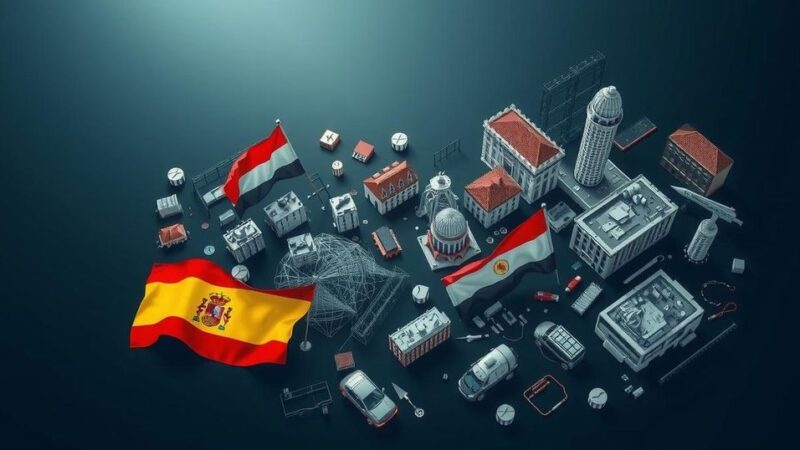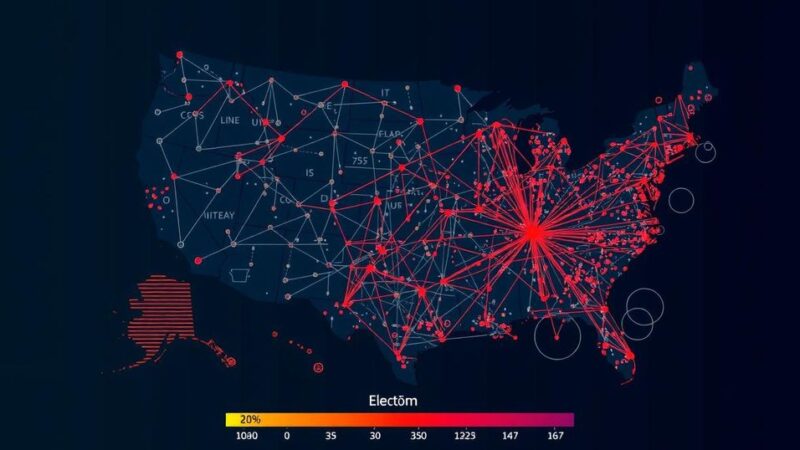Donald Trump’s potential second term could transform US trade, climate, EV, tax, and immigration policies drastically. He proposes higher tariffs on imports, plans to withdraw from the Paris Climate Accords, and advocate for tax cuts while seeking significant immigration restrictions. Internationally, he plans to reshape assistance to Ukraine and Israel, aiming to foster Middle-East relations. These proposals indicate a potential pivot towards protectionism and a departure from current policy frameworks.
The potential for Donald Trump’s second term in office carries significant implications across various sectors including trade, climate policy, electric vehicles (EVs), taxation, and immigration, among others. Many of his proposals could be enacted independently if the Republican Party secures control of Congress. He advocates for higher tariffs to address trade deficits, a withdrawal from the Paris Climate Accords, tax cuts, and policies aimed at curtailing immigration, all of which promise to reshape the US landscape during his presidency. In the foreign policy arena, Trump suggests that he could expeditiously end the war in Ukraine while asserting that military intervention in Mexico might be necessary to combat drug trafficking. Furthermore, his approach toward higher education, abortion regulations, and federal employment indicates a significant pivot in national policy priorities. To commence, Trump’s proposed tariff increase targets major import categories and emphasizes a protectionist trade agenda. He has hinted at imposing tariffs of 10% or more on all goods entering the US, which he believes would eradicate the trade deficit, despite criticisms regarding the potential negative impact on consumer prices and economic stability. In addition, Trump is particularly focused on China, proposing measures ranging from banning Chinese ownership of American real estate to suggesting a phase-out of Chinese imports over several years. On climate change, Trump aims to withdraw from the Paris Climate Accords once again, while advocating for the expansion of fossil fuel production and relaxation of regulations regarding drilling on federal land. He has also pledged to roll back regulations set forth under the previous administration regarding electric vehicles, which could jeopardize investments from foreign manufacturers and undermine progress on emissions reduction. In terms of taxation, Trump intends to maintain and potentially expand the corporate tax cuts established during his first term, aiming to further reduce rates for companies manufacturing domestically, while warning of the financial implications for federal debt. On immigration policy, Trump has committed to a comprehensive crackdown on illegal crossings, including large-scale deportations and revoking protections for certain immigrant populations. He has suggested reinstating previously enacted travel bans and limiting asylum access at the US-Mexico border. Trump’s foreign policy outlook regarding Ukraine has raised concerns, as he suggests Ukraine may have to concede territory for peace negotiations, while also considering a reassessment of NATO’s strategic objectives. He also indicates a robust support for Israel while aiming to normalize relations between Israel and Saudi Arabia, continuing a trend from his prior administration. Regarding social issues, Trump has pledged significant changes in education, pushing for abandonment of diversity programs in universities, alongside increased parental control over educational funding. In reproductive rights, he hints at continued judicial appointments favorable to restricting abortion access while allowing for certain state-level decisions. Overall, Trump’s potential second term raises numerous questions about the direction of domestic and foreign policy in the United States, as his administration appears poised for further significant reforms across multiple sectors. Should he regain the presidency, the ramifications of these proposals may dramatically alter the current political landscape and the fabric of American life.
The discussions surrounding Donald Trump’s potential second term as president reflect broader implications for US policies in elemental facets such as trade, climate action, electric vehicles, taxation, and immigration. Given the political landscape and the possible Republican majority in Congress, there is speculation about how Trump might leverage this power to implement sweeping changes, especially in sectors where he has previously expressed strong opinions. This context necessitates an examination of his proposed policies and the anticipated outcomes for both the United States and its global relationships. Understanding the historical backdrop of Trump’s administration reveals a commitment to protectionist trade measures and a distinct departure from previous climate commitments. His stances on immigration have polarized public opinion and reflected deeper societal debates on border security and America’s identity. In this framework, assessing the potential outcomes of a second Trump presidency is critical to understanding prospective shifts in national and international policy.
In conclusion, a prospective second term for Donald Trump could lead to profound transformations regarding trade, climate policy, taxation, and immigration. His assertive trade measures, particularly against China, combined with a retreat from international climate agreements, indicate a shift towards a more isolationist and economically protectionist United States. The implications for foreign policy, particularly in relation to Ukraine, and the proposed domestic reforms around education and immigration, further emphasize the potential for significant policy realignment should he assume office once more. As such, the 2024 election holds considerable weight in determining the future course of US governance and international relations.
Original Source: www.asiafinancial.com






